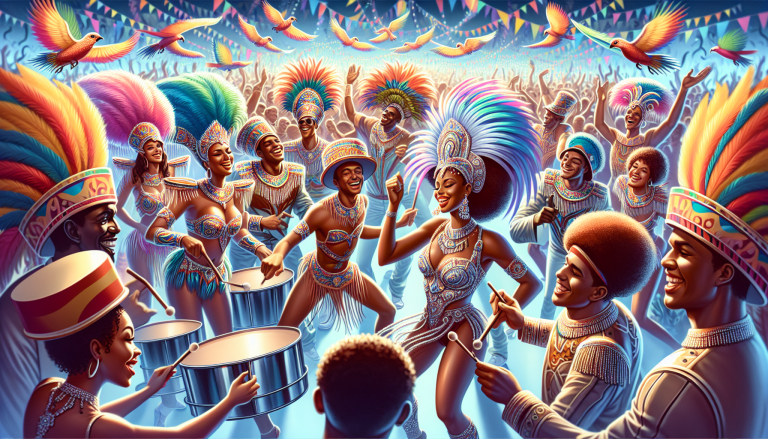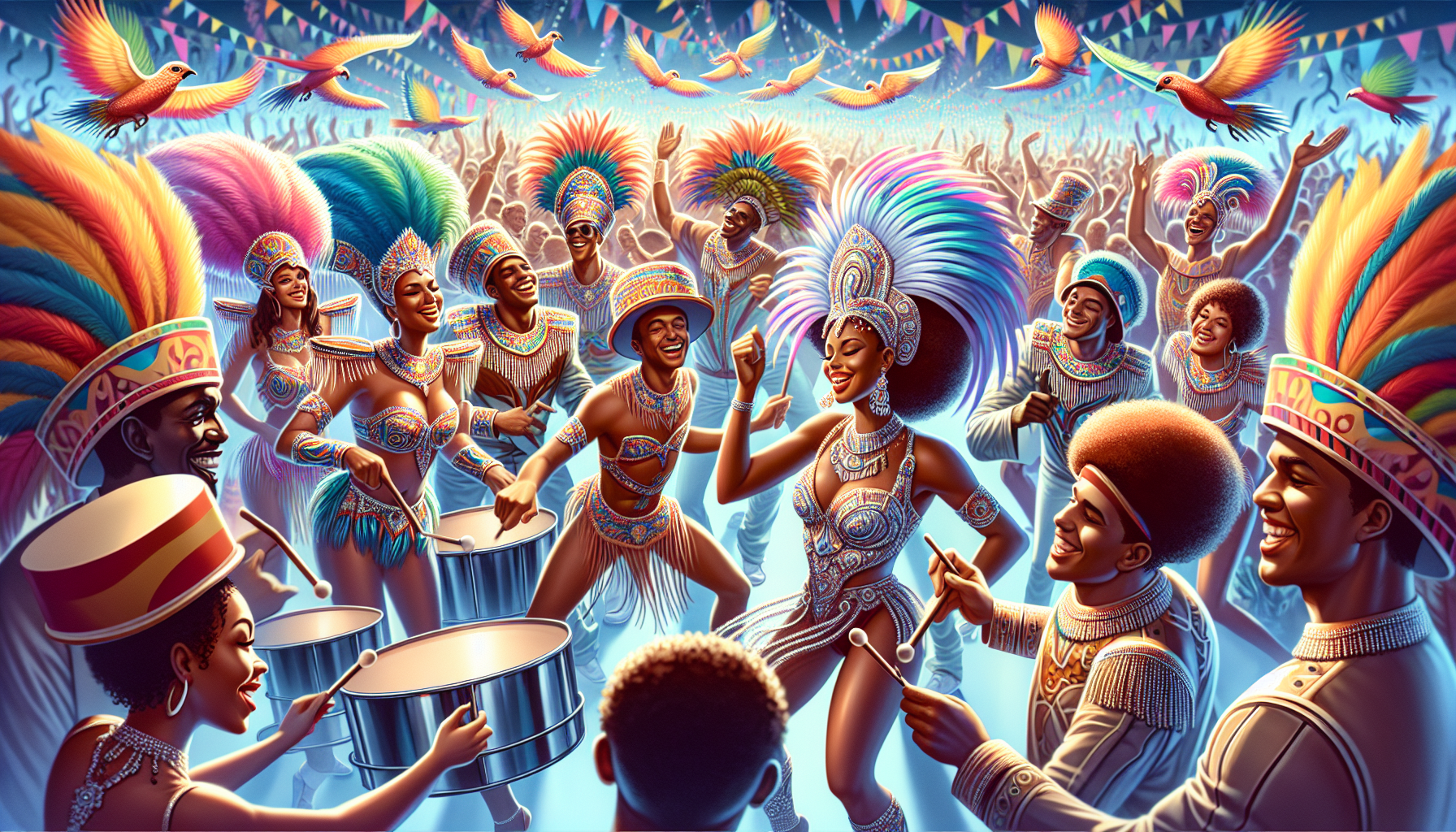Soca: The Rhythm of the Caribbean
In the vibrant tapestry of Caribbean music, one genre stands out as the pulsing heartbeat of the islands – soca. This high-energy, dance-inducing sound is more than just music; it’s a cultural expression that has captivated the hearts and souls of people across the region and beyond.
Originating in Trinidad and Tobago in the 1970s, soca is a fusion of calypso, Indian, and African musical traditions. The name itself is a combination of “soul” and “calypso,” reflecting the genre’s ability to stir the spirit and move the body. At its core, soca is all about celebrating life, embracing joy, and letting the rhythm take over.
“Soca music is the embodiment of the Caribbean spirit,” says IslandGroove, a lifelong enthusiast of the genre. “It’s a vibrant, infectious sound that reflects the energy, resilience, and cultural diversity of the islands. When you hear soca, you can’t help but feel the urge to dance and let the music carry you away.”

The Evolution of Soca
The origins of soca can be traced back to the 1960s, when calypso artists in Trinidad and Tobago began experimenting with new rhythms and sounds. The early pioneers of the genre, such as Lord Shorty and Lord Kitchener, blended traditional calypso with elements of soul, funk, and Indo-Caribbean music, creating a more upbeat and danceable style.
As the genre evolved, soca embraced the influence of other Caribbean music styles, including reggae, dancehall, and chutney. This cross-pollination of ideas and rhythms led to the development of subgenres like soca-chutney, soca-calypso, and soca-dancehall, each with its own distinct flavor and appeal.
Today, soca has become a global phenomenon, with artists and fans hailing from all corners of the world. The annual Carnival celebrations in Trinidad and Tobago, Barbados, and other Caribbean islands serve as the epicenter of soca culture, where the music comes alive in a vibrant display of costumes, dancing, and revelry.
The Infectious Rhythm of Soca
At the heart of soca’s captivating allure is its infectious rhythm. The tempo of soca music typically ranges from 120 to 135 beats per minute, creating a relentless, high-energy groove that compels the listener to move.
“The rhythm of soca is truly unique,” says IslandGroove. “It’s a driving, pulsing beat that just grabs you and won’t let go. It’s like your body has no choice but to respond to the energy and start dancing.”
The rhythm is often characterized by a heavy emphasis on the downbeat, with complex polyrhythms and syncopation that create a sense of tension and release. Soca tracks commonly feature a prominent bassline, driving percussion, and call-and-response vocal patterns that encourage audience participation.
“When you go to a soca party or carnival, the energy is just electric,” IslandGroove continues. “The music is so powerful that it transcends language and cultural barriers. Everyone is moving together, lost in the rhythm, and celebrating the shared experience of the moment.”
The Cultural Significance of Soca
Beyond its musical qualities, soca holds deep cultural significance for the Caribbean people. The genre is inextricably linked to the region’s history of resilience, resistance, and celebration in the face of adversity.
“Soca is a testament to the resilience and creativity of the Caribbean people,” says IslandGroove. “It’s a way for us to express our joy, our pride, and our collective identity. It’s a celebration of our heritage, our diversity, and our unbreakable spirit.”
During the annual Carnival celebrations, soca takes center stage, with performers and revelers using the music as a vehicle for self-expression, social commentary, and community-building. The vibrant costumes, intricate choreography, and high-energy performances are all integral parts of the soca experience, creating a unique cultural tapestry that is instantly recognizable to anyone familiar with the Caribbean.
“Soca is not just a genre of music; it’s a way of life,” IslandGroove emphasizes. “It’s about coming together, letting go of our inhibitions, and embracing the shared experience of joy and celebration. It’s a reminder that even in the face of challenges, we can find strength and resilience in our cultural traditions.”
Experiencing Soca: Where to Find It
For those eager to immerse themselves in the world of soca, there are numerous opportunities to discover this captivating genre. The annual Carnival celebrations in Trinidad and Tobago, Barbados, and other Caribbean islands are the ultimate soca destinations, where the music takes center stage and the energy is palpable.
“If you really want to experience soca in all its glory, you have to go to Carnival,” says IslandGroove. “It’s a sensory overload of music, dance, and pure, unadulterated joy. The streets come alive with the sound of soca, and the atmosphere is electric.”
Beyond the Carnival festivities, soca can be found in clubs, festivals, and events throughout the Caribbean and around the world. Many Caribbean communities in North America, Europe, and beyond host soca-themed parties and events, providing opportunities for both locals and visitors to connect with the music and culture.
For those who can’t make it to the Caribbean, there are numerous online resources available to discover and experience soca. Streaming platforms like Spotify and YouTube offer a wealth of soca music, from classic hits to the latest releases. Additionally, social media platforms like Instagram and TikTok have become hubs for soca dance tutorials and videos, allowing people to learn the moves and immerse themselves in the rhythm.
“Soca is a living, breathing art form that is constantly evolving and inspiring people around the world,” says IslandGroove. “Whether you’re on the dance floor at Carnival or watching a soca performance online, the energy and passion of this genre will captivate you and make you feel like you’re part of something truly special.”
Watch a demonstration of soca dance moves here: [no-follow hyperlink to a soca dance video]




